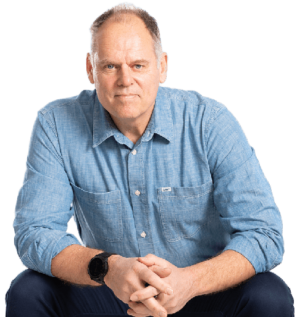I do this because I love business. The cut and thrust, the challenge, the opportunity to get stuck in with good people trying to do something difficult, I thrive on it. But beyond that, I understand what drives most leaders at this level, you’re not just building a business, you’re securing a future. For your family, your people, the things that matter most. That responsibility adds weight to every decision, and it deserves support from someone who gets what’s really at stake.
And this is why I believe all serious business leaders should have a coach. Your goal is too important not to. No serious athlete competes without a coach. Business leadership carries even more weight, so why face it alone?
I’ve worked with coaches throughout my career and I got something from each of them, but one of the frustrating things is that most in the profession tend to come from HR, L&D, financial, or psychological backgrounds. All good people, but they didn’t truly get what it’s like to carry the full weight of leadership, people’s jobs, and operational responsibility.
Eventually, I had the benefit of being coached by John Webster, a senior and highly respected advisor. Like me, he believed in coaching. He brought real gravitas, and I got a great deal from it. He is retired now. Such experience is extremely rare in a coach, particularly someone who understands what it is actually like to lead a business day to day, deal with real problems, make tough calls, and keep a team moving when things are uncertain.
A Few Words From a Client
“It has been a real pleasure, first of all, meeting Trevor and secondly engaging and working with him. For an ex-military man, he is surprisingly empathetic and perceptive. He is also practical and down to earth and seems to be able to get to the nub of an issue pretty quickly. He doesn’t let you off either; you have to show engagement and action, and he will hold you to account. If you can persuade him to coach you, and he is selective, then you have done yourself and your business a favour.”
— Stephen Waud, Group Chief Executive – Business Enterprise Fund
I spent a decade learning professional leadership in the Royal Marines, followed by thirty years running, leading, and successfully exiting businesses across multiple sectors. That combination of formal leadership training and real operational responsibility shapes how I work with senior leaders today.
That’s why I do this now. To be the advisor I always needed, someone who brings commercial judgement and lived leadership experience, not just frameworks or advice from the sidelines.

